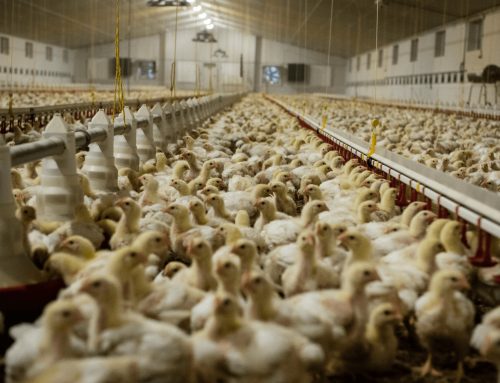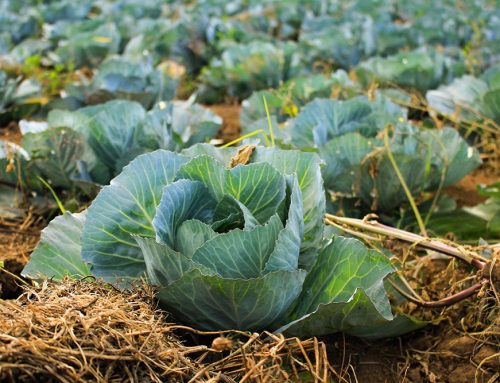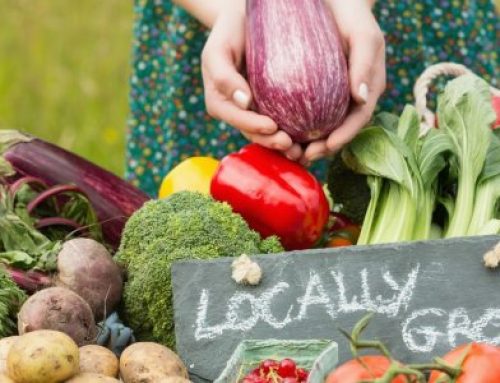
For some time, but especially the past 5 years, there has been a fundamental shift in the relationship people have with their food, and has exploded with the impact of Covid and lockdown, when shopping locally from independent businesses became more commonplace. For example. A recent sustainability report found that nearly two-thirds of the population (62%) reported they plan to stay loyal to the local businesses that helped them during Covid-19, and 55% intend to consciously buy from local independent shops.
Increasingly, consumers have developed a greater awareness of the links between food, farming, health and the environment. Questions such as where food comes from, how it’s produced and the wider impact of these choices on now key buying criteria for a growing number of consumers.
This increased awareness directly influences consumer buying patterns, choosing spend according to brand transparency and meeting the consumers own ethical requirements. Although this can be a challenge to communicate to consumers effectively, the benefits can be huge. According to research by Innova Market Insights, six in 10 global consumers are interested in learning more about where foods come from and make decisions based on their findings. Therefore, brands will need to up their transparency game to meet evolving consumer demands.
In a report by Ethical Consumer, sales of meat-free and dairy-free products increased by 25% and 28% respectively in the 12 weeks ending April 2020. They also found that going forward, 30% of people intend to eat less meat and dairy than before. They attribute this change to an awareness of the impact that animal products have on the environment and/or animal welfare.
The report also highlights consumer concern over supply chain issues such as product provenance, ethical labour, food handling safety, ecologically sound packaging, storage, and low-carbon distribution methods. Again, transparency of brand ethical standing on such factors is cited as key.
Whilst brand packaging is becoming more transparent, with on-pack claims relating to human and animal welfare and sustainable sourcing, such information is still not readily available when eating out or take-out.
It’s clear that ethical spending represents an already large, steadily growing, opportunity. The UK's Co-Op supermarket chain commissioned a report on ethical food and drink spend covering the past two decades. It established that in 1999 the UK ethical food market was worth £1bn, but by 2020 this had grown to £12.5Bn. Early indicators show that the Covid lockdown period has seen this grow exponentially, possibly tripling, and some reports suggest UK ethical consumerism could exceed £100bn by 2030.
For example, last year alone Fairtrade purchases increased by 15% – directly attributed to people spending more time at home preparing and planning meals, and perhaps with more time to research provenance.
The Soil Association Certification’s ‘Organic Market Report 2021’ confirmed that the UK’s organic market is now worth £2.79bn having seen a 12.6% growth in sales in 2020 alone. Waitrose’s How Britain Shops Report revealed that 1 in 4 shoppers are actively sought out the Fairtrade logo when shopping online in 2020, most particularly with the 18-24 age bracket.
With so much focus on personal health over the past year, and the association of health benefits with organic production – fully traceable food, fewer pesticides and no genetically modified organisms (source), it’s easy to see why consumers are increasingly turning to ethical purchases even where price used to be a factor.
Organic farms with mixed purpose fields and multi-crop cultivation, rather than the factory farming mono-crop and use of artificial fertilisers, are proven home to 50% more abundant plant, insect and birdlife. They see up to 30% higher species diversity and density, as many as 75% more wild bees, which in turn benefits the entire ecosystem, including livestock animals.
The pandemic has disrupted the routes to market, with suppliers having to adopt direct-to-consumer (D2C) as hospitality businesses closed and many lost their main customer base. E-commerce has also disrupted traditional routes to market, leading to producers and suppliers having to innovate and adopt online D2C models to continue selling their produce.
As a producer, it is increasingly important to inform customers of your ethical credentials, as when consumers feel an affinity with your own it builds loyal customers who spend more, more often and tell their friends – an invaluable commercial opportunity to build brand value and growth. Another recent report found 93% of consumers would be influenced by a brand’s ethics, however, a lack of accessible information and ‘signposting’ currently makes this hard. Yet, 73% of people would like to see more info about ethical credentials and local provenance and sourcing on the menu.
A similar scenario is played out in retail, where the information that consumers want is often missing at the point of sale (POS). The challenge is therefore sharing this information and making it visible throughout the supply chain. A Footprint Intelligence report showed that 67% of consumers want more info on ethics when eating out, but less than 20% of consumers say they find it easy to find that information.
It is notable that a companies ethical values can also negatively affect brand value, in particular the 18–34 age group. Of those, 55% of 18 to 34-year-olds have proactively changed brands due to either treatment of their workers or concerns over the brand’s environmental record. In the same research, 62% stated that ethics would influence what and where they ate. What is surprising is the ease with which huge adverse impacts are seen, such as June 2021 when a simple action taken by football star Ronaldo by removing 2 bottles of coke from the press table and saying to drink more water wiped an eye-watering $4Bn of the Coke share price.
These reports strongly highlight why it is so important to effectively communicate ethical values and credentials. One way that producers and suppliers can improve communication and transparency is with UKFoodWeb. Not only does a profile mean that your business, whether that’s as a supplier or producer, improve brand visibility and discoverability, you can also clearly communicate your ethical stance and any credentials you have.
Transparency is important and fast becoming a necessity throughout the entire supply chain commit, to adopt more ethical production methods as well as striving hard to inform consumers about those values.
Further Reading:
Organic and Fairtrade sales soar – Food Navigator
Food ethics: moral marketing – Wiley Press
UK Ethical Consumer Markets Report – Ethical Consumer





